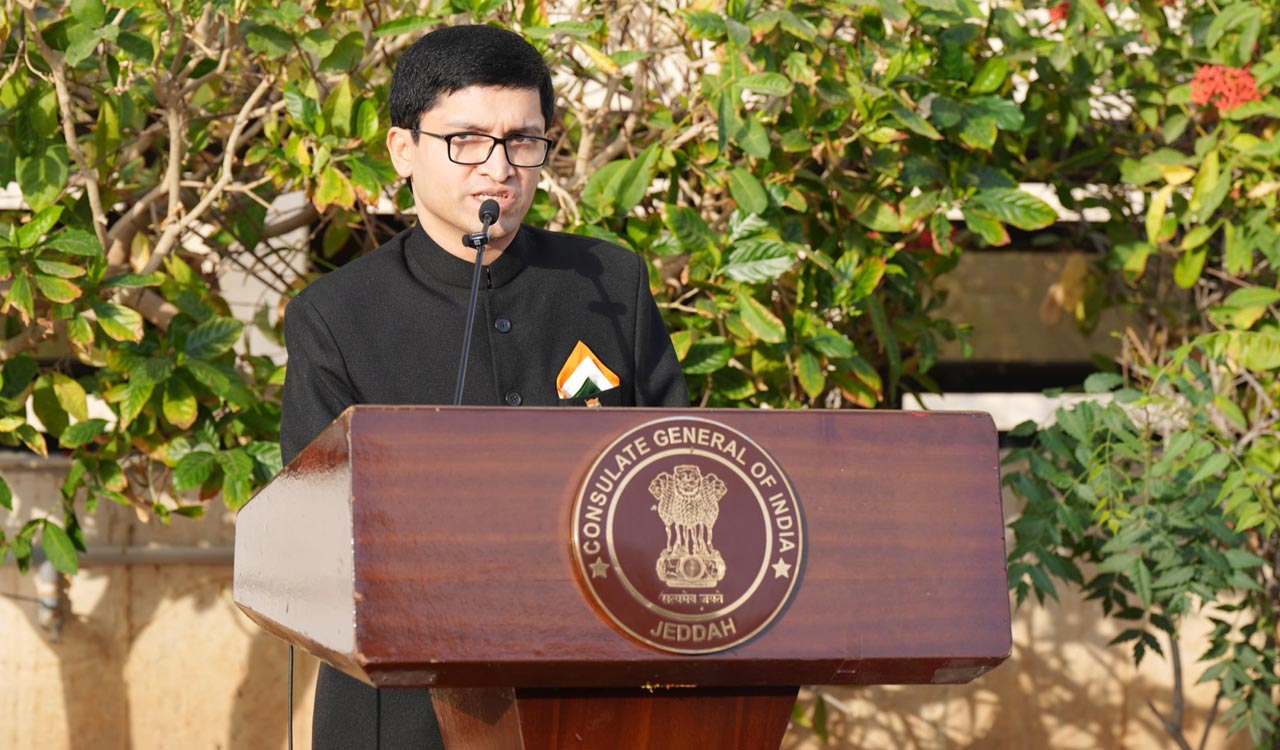Saudi Arabia abolishes Kafala system – What it means for migrant workers
Saudi Arabia has abolished its decades-old Kafala system, granting migrant workers the freedom to change jobs, travel without sponsor consent, and access legal protections. The move, part of Vision 2030, aims to improve labour rights and global perception

Hyderabad: In a landmark reform, Saudi Arabia has officially abolished the decades-old Kafala (sponsorship) system, marking a major shift in the treatment and rights of migrant workers in the Kingdom. The move, effective since March 2021 and part of Crown Prince Mohammed bin Salman’s Vision 2030 initiative, is expected to benefit ‘around 13 million migrant workers,’ making it one of the most significant labour reforms in the Gulf region.
What is the Kafala system?
The Kafala system—Arabic for “sponsorship”—is a legal framework that binds migrant workers to a specific employer or sponsor (kafeel) for the duration of their stay in a host country. It has been widely implemented in countries across the Middle East, especially in the Gulf Cooperation Council (GCC) states, and also in Lebanon, Jordan, and formerly Israel.
Under this system
- Employers controlled workers’ legal status, work permits, and even their ability to leave the country.
- Migrant workers were often unable to change jobs or return home without the employer’s permission.
- Employers sometimes confiscated passports, restricted movement, or withheld wages.
- Human rights organizations have long criticized the system for facilitating exploitation and abuse with little legal recourse for workers.
Why was Kafala controversial?
According to Human Rights Watch and Amnesty International, the kafala system gave employers unchecked power over foreign workers, especially in domestic, construction, and low-skilled sectors. In 2008, HRW said it was “incompatible with Article 13 of the Universal Declaration of Human Rights.”
In 2014, the International Trade Union Confederation estimated that 2.4 million domestic workers in the Arab Gulf and Levant were effectively enslaved, most from South Asia, Southeast Asia, and West Africa.
Where has Kafala been abolished?
Bahrain (2009): First GCC country to scrap kafala. Its labour minister publicly likened the system to slavery.
Israel (2006): The “binding system” was struck down by the Supreme Court in a landmark ruling citing human rights violations.
Saudi Arabia (2025): Though reforms began in 2021, a complete abolition was announced in June 2025, ahead of global events like the 2034 FIFA World Cup, in a bid to improve Saudi Arabia’s international image and attract investment.
Drawbacks of the Kafala system
Restricted Movement: Workers couldn’t leave or re-enter the country without sponsor permission.
Passport Confiscation: Common and often unpunished.
Forced Labour: Some employers exploited legal control to force migrants to continue working against their will.
Limited Legal Protection: Workers had minimal access to justice in cases of abuse.
What has changed in Saudi Arabia?
The reforms, which started as early as November 2020, introduced several key changes:
1. Freedom to Change Jobs: Workers can now switch employers without sponsor approval, provided certain contract conditions are met.
2. Exit and Re-entry Without Sponsor Approval: Migrant workers no longer need permission to leave or re-enter Saudi Arabia.
3. Access to Labour Courts: Workers now have improved legal access to report abuse or contract violations.
4. Digital Labour Contracts: All employment contracts must be digitally documented, increasing transparency and legal accountability.
5. Implementation via Absher and Qiwa Platforms: Saudi Arabia’s e-government systems now process visa and employment-related services.
Why Now?
Saudi Arabia is undergoing a broad transformation under Vision 2030, a plan to reduce dependence on oil and open its economy to the world. The reform:
- Aligns with international labour standards.
- Aims to attract foreign investment and skilled labour.
- Addresses long-standing criticism from rights groups and foreign governments.
- Prepares the Kingdom for hosting the 2034 FIFA World Cup, amid global scrutiny.
The abolition of the kafala system is a historic step for labour rights in the Gulf. While implementation and enforcement remain critical, the reforms provide migrant workers with unprecedented freedom in Saudi Arabia.
Activists and labour groups say continued pressure is necessary to ensure these changes lead to real, on-the-ground improvements for millions of workers.
Related News
-
Firing heard outside Banaras Hindu University hostel
4 mins ago -
Mancherial: Government job aspirant consumes pesticide, succumbs in hospital
18 mins ago -
Trump tariffs, GDP data and other cues likely to drive D-Street next week
20 mins ago -
Pak joins 13 other nations in condemning US ambassador’s remarks on Israeli expansion in West Asia
21 mins ago -
Red Fort, Temple targets on radar: ISI-backed module busted in TN, Bengal
36 mins ago -
Former Assam Cong chief Bhupen Borah joins BJP
37 mins ago -
PM Modi to inaugurate Meerut Metro, Namo Bharat train
54 mins ago -
Farmer dies in road mishap near Pahadishareef in Hyderabad
1 hour ago




